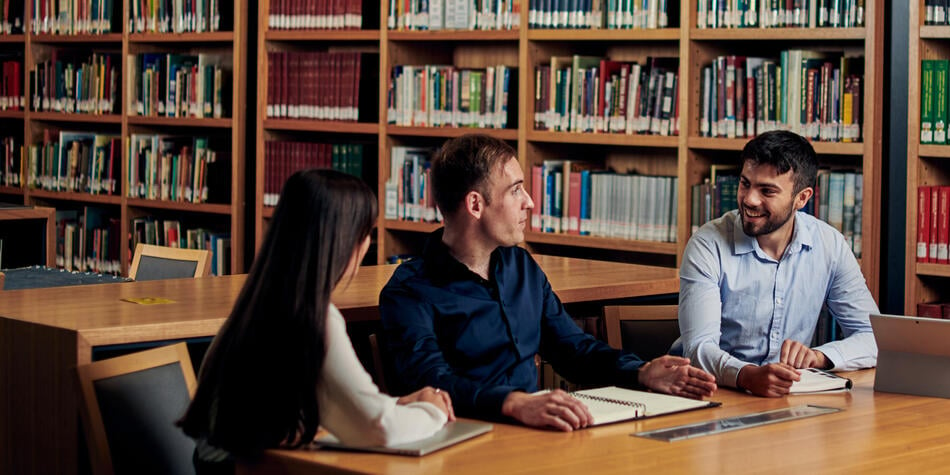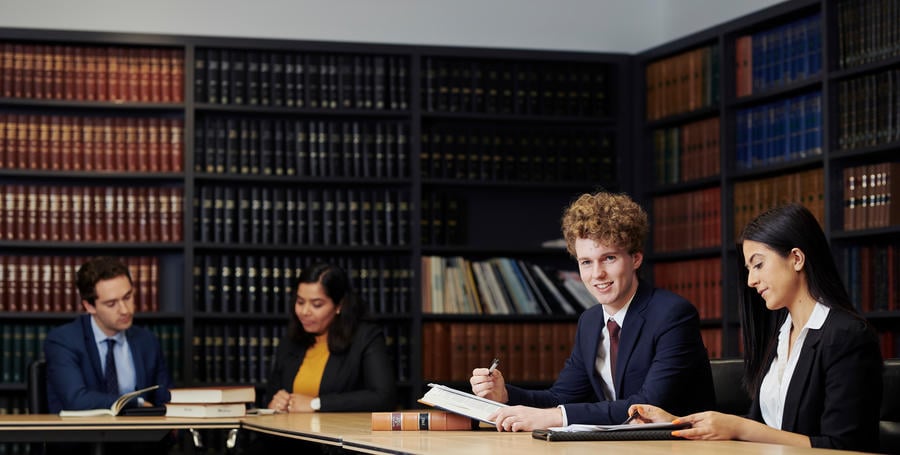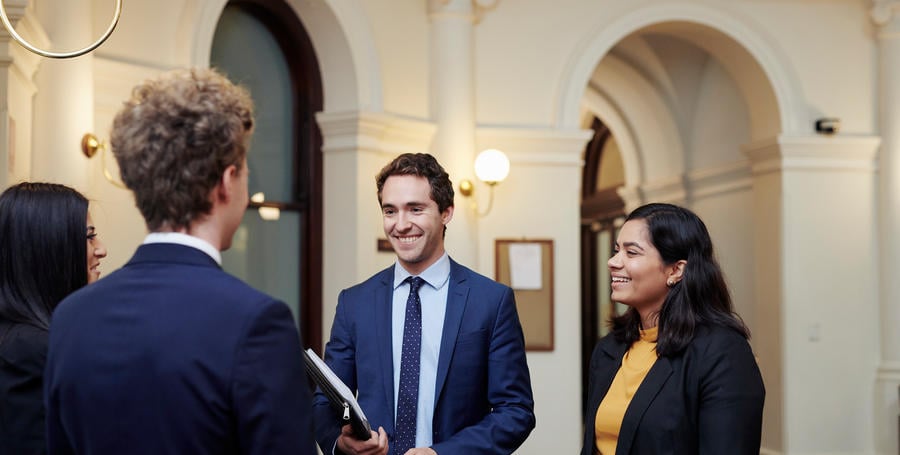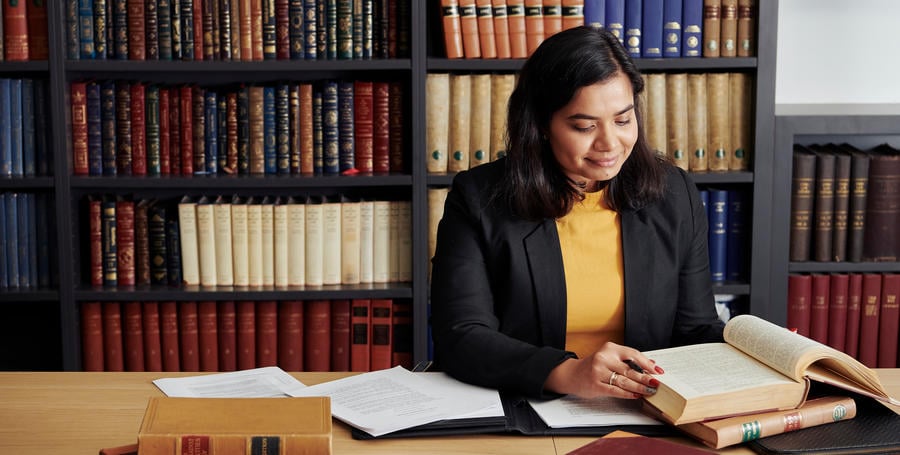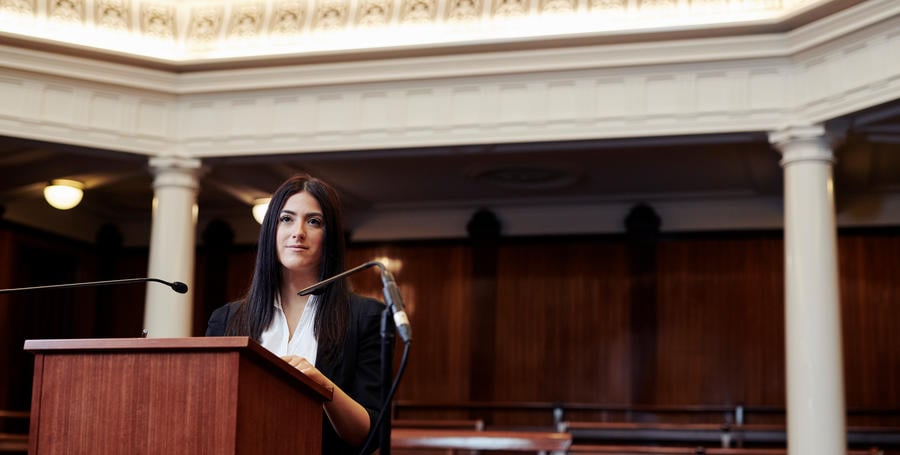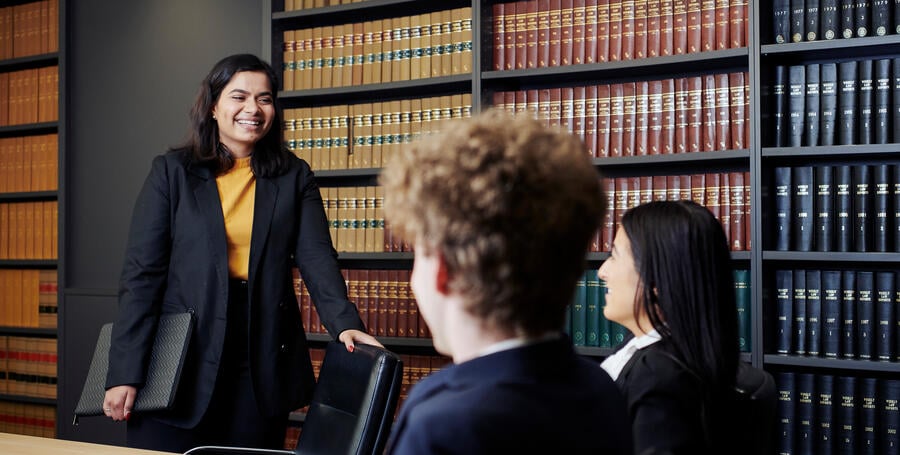Educating tomorrow's lawyers
Our clinic provides legal advice, assistance and information to people experiencing disadvantage accessing legal services. It also aims to educate the broader community in relation to their legal rights and justice issues. Excellence requires practice and experiential learning – learning by doing – and Deakin Law Clinic offers this opportunity when you’re in your final years of study.
How does the Deakin Law Clinic work?
Under the supervision of qualified, experienced legal practitioners, we offer opportunities for you to build legal skills that are grounded in your academic training. You’ll analyse complex legal problems and develop critical skills for a career in the law, including analytical, drafting, oral communication and problem-solving skills.
Who can apply to the program?
Deakin Law Clinic is a teaching law firm that provides legal placement if you are an advanced student at Deakin Law School. It's available if you are studying a Bachelor of Laws or Juris Doctor (JD) and are eligible to use a work-integrated learning unit towards your degree.
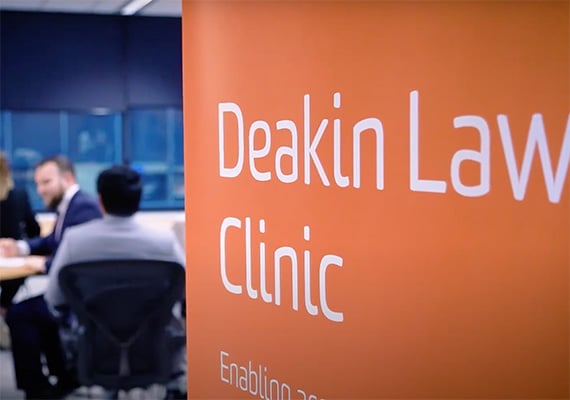
Find out how Deakin Law Clinic equips you with legal skills
Hear from students and staff at Deakin Law Clinic, on the opportunities it provides for our students to work on real-life client matters.
We offer free legal advice in the following areas
Deakin Law Clinic provides legal advice and assistance to eligible clients through the following practice areas. You can find out more about what we offer on the Deakin Law Clinic website.
- Civil Law Practice
- Criminal Law Practice
- Employment Law Practice
- Generalist Law Practice
- Policy Advocacy Law Practice
- Family Law Practice
Deakin Law Clinic impact
In 2022 to 2023, 136 Deakin law students completed their work-integrated learning units and provided free legal advice to 144 clients who were experiencing disadvantage in their access to justice. Of the 138 matters opened, 126 were closed.
The clinic provides the perfect environment to learn how to apply the knowledge and skills learnt in our studies to situations with clients. The most important thing I learned was the value of ensuring that every person in the community has access to legal support.
Phoebe Lawless-Pyne
Bachelor of Laws
Who do we provide legal assistance to?
We provide legal advice to:
- people with a disability or mental health condition
- people for whom paying for legal services would cause undue financial hardship (ordinarily from households who earn less than $80,000 per year)
- people from a culturally and linguistically diverse background (CALD) affecting their understanding of English or the legal system
- Aboriginal and Torres Strait Islander people
- people referred through other pro bono programs which have means or other testing for obtaining pro bono legal assistance
- small businesses (as defined by the Fair Work Act 2009 (Cth)) who are not otherwise able to access legal assistance.
We focus on providing legal advice to clientele who meet the above criteria across Victoria. In instances we cannot provide legal assistance or advice, there are a number of other legal resources available to the public:

